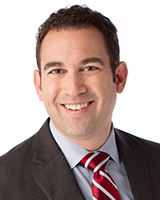FDA approves Bay Area company's device designed to help people walk again


RICHMOND, Calif. (KGO) -- The FDA made a landmark decision for a Bay Area company that could change the lives of people who have trouble walking.
Arash Bayatmakou's been working to regain some function in his lower body. Now, his rehab includes an Ekso GT, a powered exoskeleton made especially for rehab.
"I was injured in July of 2012. I fell and broke my neck," Bayatmakou said.
After five minutes putting it on, for the brief moments of his physical therapy session Bayatmakou can walk again.
The Ekso GT doesn't read minds, it reads movements.
"The machine can see that the patient is in the right position and has in fact shifted their weight, and then the machine initiates a step," said Ekso Bionics marketing director Heidi Darling.
Ekso began at UC Berkeley with a challenge to help soldiers lift heavy gear. It's since helped a student with a spinal cord injury walk onstage to graduate and helped another man walk down the aisle. Now it's gotten official clearance from the FDA.
"I think people are really excited. They've been working really hard," said Ekso Bionics Chief Financial Officer Max Schederbieshin.
But the part of the announcement that has some people most excited actually isn't about spinal cord injuries. Ekso's been approved to use this device with some of the 800,000 Americans a year who suffer a stroke.
"When you suffer a stroke, you have some immediate paralysis in your acute phase. And it's very, very important for you to recover that you mobilize as early as possible," Schederbieshin said.
For stroke victims, Ekso means more practice walking so the brain can form new pathways.
"Once they've met our challenge, we're going to make it harder for them and have them meet the next challenge," said Jenn Macievish, Ekso Bionics physical therapist.
Ekso hopes to make it the new standard for rehab, which will help fund the research for what Bayatmakou has dreamed of. "I would like to see wheelchairs gone," Bayatmakou said.






